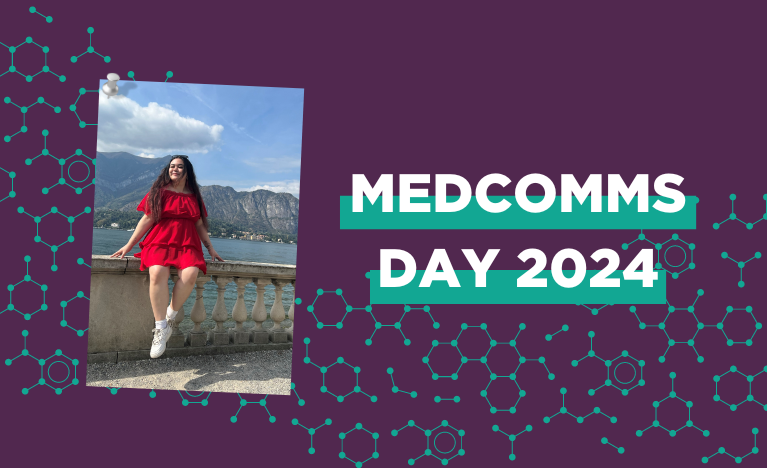2024-06-12
This MedComms day 2024 we asked Nicole Scullion, Senior Medical Writer here at Virgo Health to tell us about her journey into the world of Medical Communications and what a typical day might look like.
Describe your role to a friend…
Medical writing involves working with pharmaceutical companies to help educate doctors, patients and the public on their products in a number of different ways. For example, through the creation of educational materials or at events such as congresses. While you are often sitting at a desk researching or developing content, you also have the opportunity to travel.
What area of MedComms do you work in?
In my current role I cover three therapy areas: surgical imaging, immunosuppression post-organ transplantation and oncology (neuroendocrine cancer). At Virgo, I have also had the opportunity to explore additional areas such as women’s health and nephrology. Within these therapy areas, my work spans various medical education projects, including advisory boards, symposia and the development of educational materials such as core decks, publication summaries and infographics.
A typical day at work?
My daily routine varies based on client needs and upcoming events. As a mostly remote worker, I connect with internal teams, have client calls and create or edit materials from home. Currently, I am focusing on finalising content for a symposium taking place in the Netherlands this week.
When I visit the office, this provides an opportunity to attend training, brainstorms and team meetings in person. It also gives me the chance to catch up with team members that I may not interact with daily.
What 3 skills are most important to your role:
- Attention to detail
- Communicating confidently with your team and with clients
- Being able to interpret data in a creative way
How would you describe MedComms?
MedComms is a very dynamic and varied industry which serves as the link between the scientific community, pharmaceutical companies, healthcare professionals, patients and the wider public. While translating complex scientific information, MedComms allows for creativity, collaboration and strategic thinking.
How did you land on a med comms career?
I attended the University of Liverpool to study a BSc (Hons) degree in Biological Sciences, followed by an MRes degree in Biomedical Sciences and Translational Medicine, with a focus on oncology and uveal melanoma. After completing my master’s degree in 2019, I discovered medical writing while searching ‘jobs for biology graduates’. My journey began over four years ago as a Trainee Medical Writer, soon progressing to Associate Medical Writer, Medical Writer and joining Virgo in August 2023 as Senior Medical Writer.
What advice would you give people interested in MedComms careers?
For anyone starting a career in MedComms, I would recommend networking and connecting with professionals already working in MedComms to seek advice and learn about their experiences. LinkedIn is a great tool for this as you can connect with so many people in the industry (including recruiters) and find out about MedComms specific events.
I would also advise preparing as much as you can for the application process as this typically involves a few interview rounds in addition to a writing test.
My final piece of advice is that starting a new career can be challenging, so give yourself grace during this time. It may be daunting at first and it may not ‘click’ immediately, but as you settle in, you will find your rhythm and purpose.
Lastly, tell us something surprising about yourself!
I am not an outdoorsy person at all, however, I forced myself to climb Mount Kilimanjaro!
